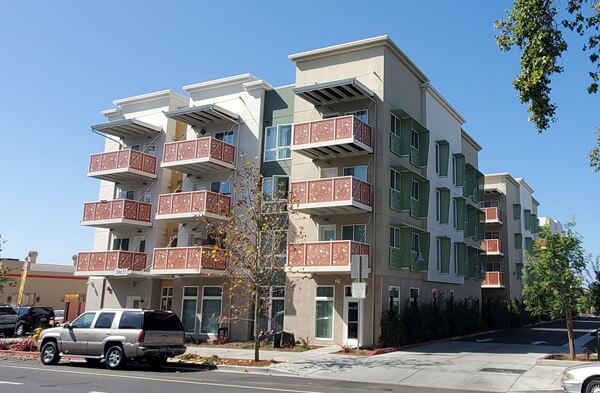
It can be difficult to decide what is the difference between a condo and an apartment, but with the appropriate knowledge, it’s easy to locate the ideal home!
In order to help you make an informed decision and prevent second-guessing, this article will examine the important details surrounding the long-running argument between apartments and condos and majorly what is the difference between a condo and an apartment? Are condo and apartment the same?
Despite their numerous similarities, many tenants might be surprised to learn that condos and apartments are not the same thing so then what is the difference between a condo and an apartment? What do Canadians call apartments? Let’s examine the specifics to learn more about each rental choice.
Table of Contents
A Condo: What is it?

A condominium is a type of private home that is leased to tenants. A condominium is normally found in a residential complex or building, but the unit is privately held by the person who rents out the space.
Renting a condo is more of a private, one-on-one transaction than renting, say, an apartment, since the condo owner has complete discretion over who is permitted to occupy their space. Unless they reside in another condo they own in the same building, the landlord won’t be present.
What Constitutes an Apartment?

An apartment is a rental property that is, depending on the circumstances, often owned (not just managed) by a property management firm and situated in a residential building, complex, or community.
In an apartment complex, every renter adheres to the same rules for renting a unit inside the complex, and every unit is identical. Each tenant answers to the same property manager, who is usually found in the leasing office at the front of the community or within the complex, along with hired leasing agents who help current tenants and lease other units.
Key Difference Between Condo and Apartment
1. Ownership
As was already noted, the ownership structure and rules are the main differences between a condo and an apartment. We’ll go into greater detail and learn ‘are condo and apartment the same?’ and about the differences between these two living units now:
In addition, we often get asked “What do Canadians call apartments?” In an apartment complex, which consists of several units, each unit is leased from a landlord, who may be a single owner or a management firm. Property taxes and other required payments are the landlord’s responsibility, not the tenants of the apartments.
A condominium is another type of multi-unit housing, however in this instance, each occupant buys their unit outright from the developers or a prior renter. Property taxes and other expenses are the responsibility of the condo’s owner, who is also its resident.
2. Upkeep
As the condo’s owner, it is your duty to keep your property secure and livable and to arrange for any necessary repairs as well as any optional home remodeling tasks.
The owner of the unit bears responsibility for both the expense and scheduling of maintenance, which explains the disparities in accountability:
Any structural damage, necessary repairs, and maintenance requests, such changing a lightbulb that is out of reach or the batteries in a smoke detector or unclogging a drain, must be handled by the landlord or unit owner. The first thing you should do if you see any problems with your apartment’s interior is give your landlord or the building super a phone or an email.
The owner of a condo, who is also the tenant, is in charge of maintaining the property. This does not, however, apply to issues with building exterior maintenance or shared places, over which the homeowner’s association has jurisdiction.
Apartment living relieves you of routine maintenance duties, but it also limits your options for remodeling, decorating, and other improvements. You might not be able to paint, hang things on the walls, or change an appliance if you don’t own the area.
Fortunately, the lack of financial burden and comfort of mind rapidly offset the restricted design options—especially if you’re renting a gorgeously equipped unit from Common. In addition, a skilled team of property services representatives will attend to your maintenance needs in
3. Guidelines and Policies
Rules are often disliked by everyone except those who have to enforce them, but if you want to maintain a positive relationship with your landlord or property manager, you must abide by them. These could vary according to the kind of rental you live in.
In a Condominium
The HOA in a condo will probably establish the building’s residential rules. For example, there can be regulations prohibiting you from clearing up pet waste, leaving personal belongings lying around the neighborhood, or keeping trash outside your front door. Regarding dogs, just because the condo complex allows them doesn’t guarantee that the unit you’re interested in renting will allow them as well. Verify with the landlord that this apartment is pet-friendly should you want to take your pet with you when you rent a vehicle.
Within an Apartment …
Tenants are required to adhere to the same standards about the interior of the flat, but you can also find instructions from the property management firm for trash and pet waste in the neighborhood. While painting an apartment’s walls, hanging large objects that could break the walls, and doing any kind of permanent decorating are prohibited, condo owners frequently have more lax rules. All depends on the owner, of course!
Which is a Better Option: An Apartment or a Condo?
So, if you want to rent a house in Canada, is an apartment or a condo the better choice?
Well, that varies somewhat depending on your needs. In a perfect world, you would find an apartment with facilities similar to condos in a centrally located, relatively new building. Though uncommon, it does exist!
Otherwise, you have these two choices:
Option 1: You are not too particular about how posh and new your apartment should look, you don’t mind being close to the city center (because you have a car or are near the transit hub), and you want to make sure that you don’t pay too much. Then renting an apartment could be the best option for you.
Option 2: You are probably better off with a condo if you value your position as a resident, appreciate being in a more recent building that is only a short distance from your place of employment or the metro station, and value having a wide variety of amenities.
As we have unlocked the secret behind, “what is the difference between a condo and an apartment” what is your say for it?
Related Articles

My name is Adnan Khan and I am a realtor specializing in Pre-construction condos and homes sales.
I also do assignments of condos. You can contact me at 416-897-4714
Designation: P.Eng
Education: McMaster University, Engineering Technology
Specialty: Residential Real Estate
Experience: 15+
Area Covered: Downtown Toronto and Neighboring Area
Languages Spoken: English, Urdu





Leave a Reply